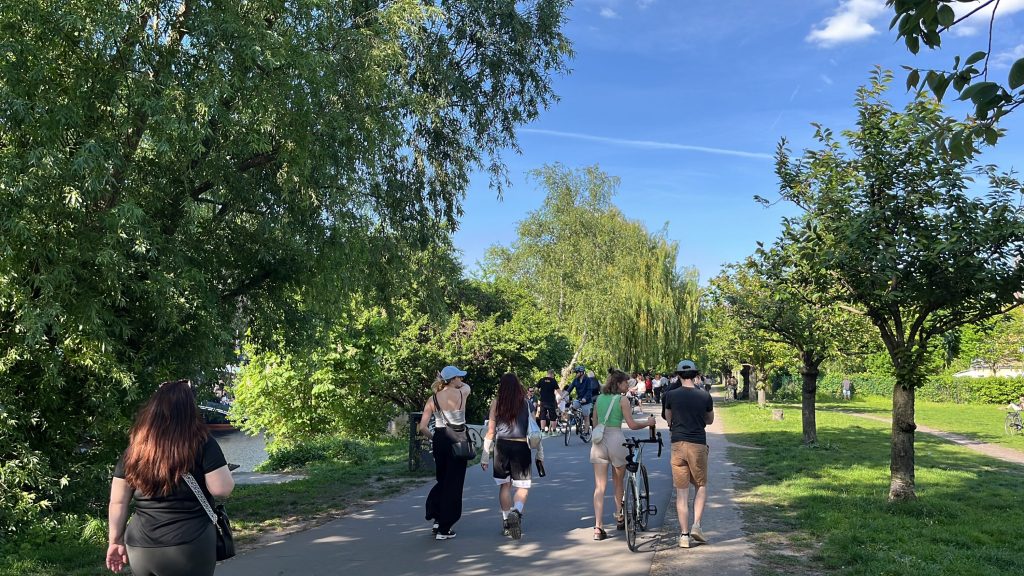
Student Accommodation Guide in Germany: Complete Guide for International Students
With many highly regarded higher education institutions, practically oriented programmes and a diverse, welcoming environment, Germany is one of the best countries in the world for students.
However, unlike many other countries you won’t automatically be given accommodation when you register at a university or college. Depending on which city you’ll be studying in and how much money you have available, there are several different options when it comes to finding a place to stay.
In this guide, you’ll find everything you need to know about student accommodation in Germany so that you can find an affordable place to live while you study.

What is Student Accommodation?
When you’re moving to a city or town to study, one of the first things you should look for is suitable accommodation.
Accommodation in Germany is usually divided into two types: student dormitories (or halls) and private lodgings.
Every university city in Germany will have dormitories and private lodging, but you should start looking as early as possible as places can fill up quickly.
Why Student Accommodation in Germany?
While you aren’t automatically given accommodation when registering at a university, the good news is that there are plenty of options to choose from, ranging from budget-friendly dormitories to private student apartments.
Provided you start looking early, you’ll be able to find the perfect accommodation, allowing you to study and experience Germany in comfort.
Types of Student Accommodation in Germany
Germany offers a wide range of accommodation suitable for any budget or preference. From a budget-friendly student dormitory to a shared apartment, there are options for every type of student.
Student Dormitories
Dormitories are the most common option for students in Germany. These dormitories are the best option for students looking to save money, providing affordable housing close to campus.
Dormitories are typically single rooms in shared apartments, making them a great way to meet new people. However, they tend to fill up quickly so it’s important to apply early.
Student Apartments
Student apartments are small, fully furnished one-room flats, typically with a private kitchenette and bathroom. They are more expensive than dormitories but offer more privacy and are often located in quieter areas for a more peaceful experience after a day at university.
Shared Apartments
Multiple students can rent a space together. In these apartments you’ll share the kitchen, living area and bathroom, but each student will have their own private bedroom. Shared apartments are a popular choice for international students and offer an affordable way to live independently whilst still enjoying the social aspect of student life.
Private Apartments
There are many private apartments in Germany for students, and renting one of these apartments is a great option for those looking for more space, privacy and independence. These apartments are more expensive options compared to other accommodation but are fully furnished and provide a high level of privacy and freedom.
Student Hostels
Student hostels can be a good option for short-term accommodation. They offer basic amenities, and shared rooms, so are not as suitable for long-term stays, but they can be very useful for students who arrive in Germany before securing permanent accommodation.
How Much Does Student Accommodation Cost in Germany?
The cost of student accommodation in Germany varies based on where you’re staying and the type of accommodation you’ll be staying in. Renting in bigger cities like Berlin and Munich will be more expensive than in smaller cities like Leipzig and Bremen, for example.
On average, students pay between €250-€450 a month for student dormitories, between €300-€600 a month for shared apartments and between €500-€900 a month for a private apartment.
How to Find Accommodation in Germany
Ideally, you should begin searching for student accommodation in Germany before you register for a college or university.
Upon acceptance at a university, you’ll be able to apply to stay in a student dormitory or apartment, which can be done via the university’s student union or International Office. However, places tend to fill up very quickly so it’s essential that you apply as soon as possible.
If you’re looking for private accommodation, you’ll need to search the private market using online portals where you’ll be able to look for private apartments or shared spaces.
If you arrive in Germany before securing your accommodation, you may be able to spend your first few nights in a student hostel. Your university’s student union or International Office should be able to offer you advice for this.
How Can I Apply for Accommodation at Gisma?
No matter which Gisma campus you’re studying at, we offer a wide range of accommodation whatever your budget, lifestyle or preference.
If you’re studying at Gisma and looking for student accommodation Berlin, you’ll have exclusive access to Edge Student Hub, a modern student residence located just outside the city in Zossen, which offers single rooms, shared rooms and apartments.
Whatever you’re looking for, our accommodation team is always happy to help with our free Accommodation Advisory Service.
You can find out more about Gisma accommodation by speaking with a programme consultant.
Conclusion
Finding student accommodation in Germany is not always easy, but by applying early and knowing what kind of accommodation you’re looking for, you’ll find the perfect housing for your studies in Germany.
FAQs
Are There Any Age Restrictions on Student Housing in Germany?
Some accommodation in Germany will have age limits, so it’s essential to check when you apply. Students under 18 will usually have significant restrictions and will need a legal guardian to sign the rental agreement.
How Early Should I Start Searching for Student Accommodation?
Student accommodation in Germany tends to fill up quickly, so it’s important to apply as early as possible. You should start looking at accommodation in Germany at least six months before you register.
How Can I Avoid Housing Scams as an International Student?
While there is a risk of housing scams with student accommodation, you can avoid it by knowing the key signs. You should always apply for student accommodation using verified student housing platforms and request a tenancy agreement before paying. If possible, pay your deposit via credit card instead of cash. Finally, make sure to check reviews before applying, and make sure you securely send any important documents like your passport or proof of student status.
Is It Hard to Find Accommodation in Germany?
Every university town or city in Germany has some form of student accommodation, ranging from student dormitories to private apartments. However, they can fill up quickly, so it’s important to apply early to secure your preferred accommodation.
How Do International Students Find Accommodation?
International students can find accommodation in Germany, but it’s important to start early and be aware of potential scams. Most universities have an International Office which can provide resources and guidance for international students looking for accommodation. It’s also important to have important documents, such as passports, bank statements, and proof of student status, on hand, especially if you’re applying for private accommodation..
Want to explore more?
